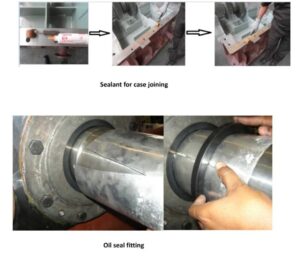Mobile:+86-311-808-126-83
Email:info@ydcastings.com
engine oil pan
The Importance of the Engine Oil Pan
The engine oil pan, often overlooked in discussions about vehicle maintenance, plays a crucial role in ensuring the smooth operation of any engine. This essential component is the reservoir that holds the engine oil, allowing it to lubricate the moving parts of the engine, reduce friction, and dissipate heat. Understanding its design, function, and maintenance can help vehicle owners appreciate its importance and take better care of their cars.
Design and Structure
An engine oil pan is typically made from either stamped steel or aluminum, designed to withstand varying temperatures and pressures while maintaining a secure seal. The pan is located at the bottom of the engine and is usually bolted to the engine block. Its shape is specifically engineered to hold a sufficient amount of oil while allowing easy access for oil changes and inspections.
Inside the oil pan, there are often features such as baffles and windage trays, which help manage the oil flow and minimize the chances of oil starvation during high-performance driving or hard cornering. These design elements ensure that the oil circulates effectively, providing optimal lubrication when and where it is needed most.
Function
The primary function of the oil pan is to store engine oil, which is critical for lubricating the engine's internal components. Lubrication reduces friction between moving parts, which can lead to increased wear and tear. Moreover, the oil absorbs heat from the engine, helping to regulate its temperature and prevent overheating. As the engine runs, oil is pumped from the pan through various passages, delivering lubrication to critical components such as the crankshaft, pistons, and camshafts.
engine oil pan

The oil pan also serves as a collection point for any contaminants that may accumulate in the engine oil, such as dirt, metal shavings, and carbon deposits. Over time, these impurities can degrade engine performance, making regular oil changes imperative to maintaining a healthy engine.
Maintenance
Proper maintenance of the engine oil pan is vital for prolonging the life of the engine. Regular oil changes help to keep the oil clean and free of contaminants, while also allowing for the inspection of the oil pan for any signs of leaks or damage. A leaking oil pan can lead to a drop in oil levels, resulting in inadequate lubrication and potential engine failure.
It is essential for vehicle owners to check their oil levels frequently, as low oil levels can indicate a leak or excessive consumption. An engine oil pan with cracks or damage can also result in significant oil loss, which not only affects engine performance but may also lead to environmental concerns due to oil spills.
Conclusion
In summary, the engine oil pan is a critical component of any vehicle's engine, providing essential storage and management for engine oil. Understanding its function, design, and the importance of maintenance can empower vehicle owners to take proactive measures in caring for their engines. By ensuring that the oil pan is in good condition and that the engine oil is regularly changed, owners can help maintain engine performance, prolong engine life, and reduce the risk of costly repairs. The engine oil pan may not be the most glamorous part of a vehicle, but its role in the overall health of the engine is undeniable and essential for any car owner to comprehend.
-
Why Should You Invest in Superior Pump Castings for Your Equipment?NewsJun.09,2025
-
Unlock Performance Potential with Stainless Impellers and Aluminum End CapsNewsJun.09,2025
-
Revolutionize Your Machinery with Superior Cast Iron and Aluminum ComponentsNewsJun.09,2025
-
Revolutionize Fluid Dynamics with Premium Pump ComponentsNewsJun.09,2025
-
Optimizing Industrial Systems with Essential Valve ComponentsNewsJun.09,2025
-
Elevate Grid Efficiency with High-Precision Power CastingsNewsJun.09,2025











